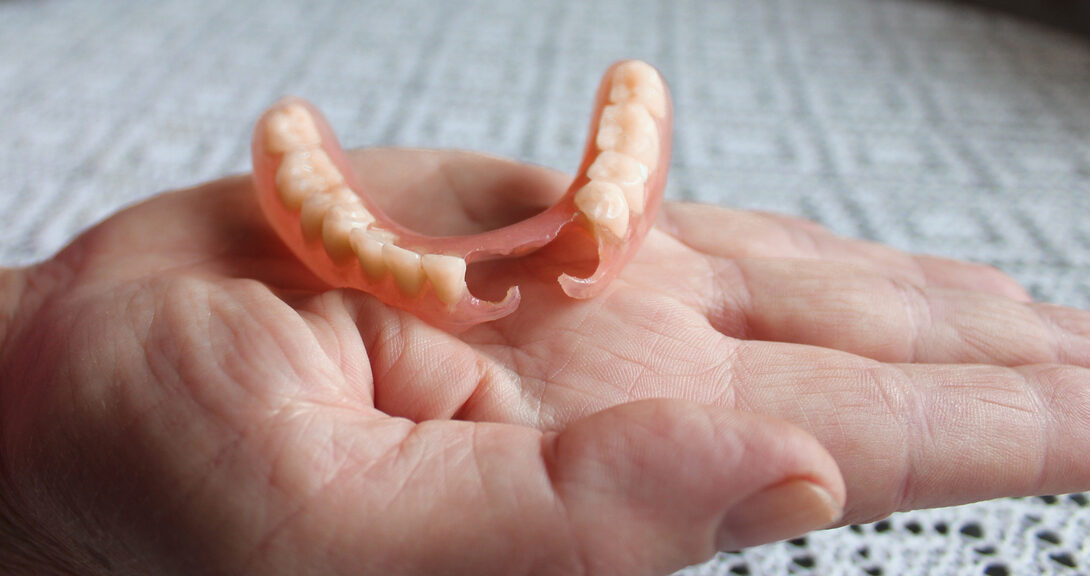What are Flexible Dentures?

Choosing the right type of dentures is key for comfort, functionality, and overall oral health. There are various denture options available today, each with its unique benefits and potential drawbacks. One of the most significant innovations in this area is flexible dentures, which offer an alternative to traditional rigid dentures. These dentures are a modern solution for individuals who require dental prosthetics but want a more comfortable and adaptable option.
In this article, we’re going to look in-depth at flexible dentures to help you decide if they’re the right choice for you.
Drawbacks of Regular Dentures
Regular dentures are still a popular choice, but for some people, they can cause problems. Traditional dentures are often made from more rigid materials that in a minority of cases do not conform as well to the natural contours of the mouth. In those scenarios this can lead to greater difficulties in fit, necessitating multiple adjustments. In extreme cases, it can cause sores and other issues like bone loss in the jaw over time. Due to being made from a harder material, and if not manufactured using premium materials, they can be susceptible to breakage if dropped and will wear over time.
New wearers of regular dentures frequently experience an initial period of soreness and discomfort as their mouths adjust to the foreign object. They can also be prone to slipping or moving, causing difficulties with speech and eating, which can be frustrating and embarrassing for the wearer. There’s also the aesthetics problem, as the rigid structure can cause a less natural-looking smile and with poorer quality dentures are easier to identify as dentures.
What is a Flexible Denture?
Flexible dentures are made from various materials, including acrylic, and increasingly, through 3D printing technologies. These materials are chosen for their adaptability and compatibility with your mouth.
The design of flexible dentures focuses on providing a snug fit by using materials that conform more easily to the shape of the gums and mouth. This flexibility reduces the need for the denture adhesive often necessary with regular dentures. In terms of flexibility and fit, flexible dentures offer a significant improvement over traditional models. They adapt better to mouth movements and changes in the gums over time, reducing the need for frequent adjustments.
What are the Pros of Flexible Dentures?
Flexible dentures offer plenty of benefits when compared to more traditional versions. This includes areas such as comfort, durability and improved oral health. Some of the key advantages that flexible dentures offer include:
• Soft, Flexible Materials Reduce Soreness: The soft and pliable materials used in flexible dentures can significantly reduce the initial discomfort typically associated with new dentures.
• Better Adaptability to Mouth Movements: Flexible dentures move with the mouth, providing a more comfortable and secure fit, which enhances the wearer’s confidence to speak and eat normally.
• More Resistant to Breakage: The materials used in flexible dentures are generally more resistant to breakage, making them a durable choice for long-term use.
• Easier to Clean and Maintain: The non-porous nature of the materials used prevents the absorption of stains and odours, making flexible dentures easier to clean and maintain than traditional ones.
• Gentler on Gums and Surrounding Tissues: Flexible dentures are designed to be gentler on the gums and surrounding tissues, reducing the risk of irritation and sores.
• Reduced Risk of Gum Irritation and Sores: With their improved fit and softer materials, flexible dentures pose a lower risk of causing gum irritation and sores compared to traditional dentures.
Who Should Consider Flexible Dentures?
Individuals who have experienced discomfort with traditional dentures or those looking for a more natural-looking alternative might consider flexible dentures. They’re also ideal for those prone to allergies from the materials used in traditional dentures. Flexible dentures are particularly beneficial for patients with irregular bone structures or sensitive gums. Their adaptability makes them suitable for various mouth shapes and conditions.
Choosing the right type of denture is a decision that should be made with the guidance of a dental professional. They can provide personalised advice based on an individual’s specific oral health needs and lifestyle.
If you have any questions about making the switch to flexible dentures, our team at Denturly would love to help. Please book a consultation with us today for more information.
View our denture clinics
Find a Denturly clinic near you. We are always expanding our nationwide network of clinics to make our service more accessible.